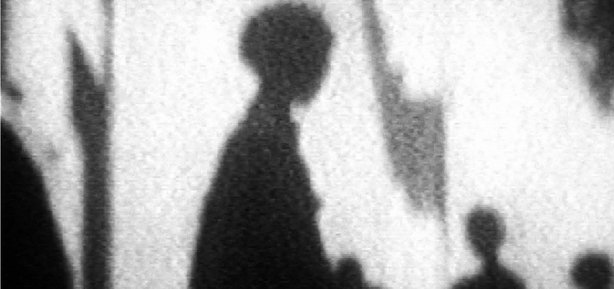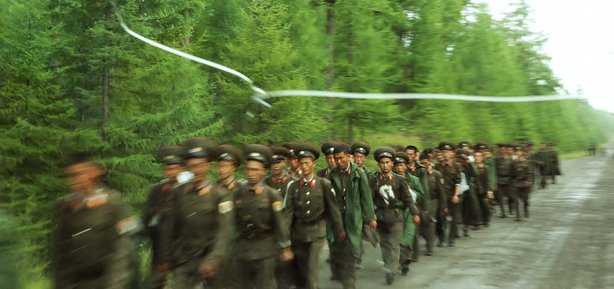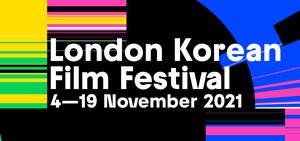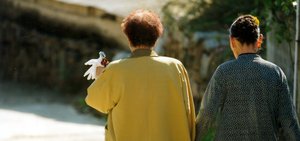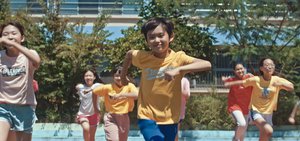Yoo Soon-mi
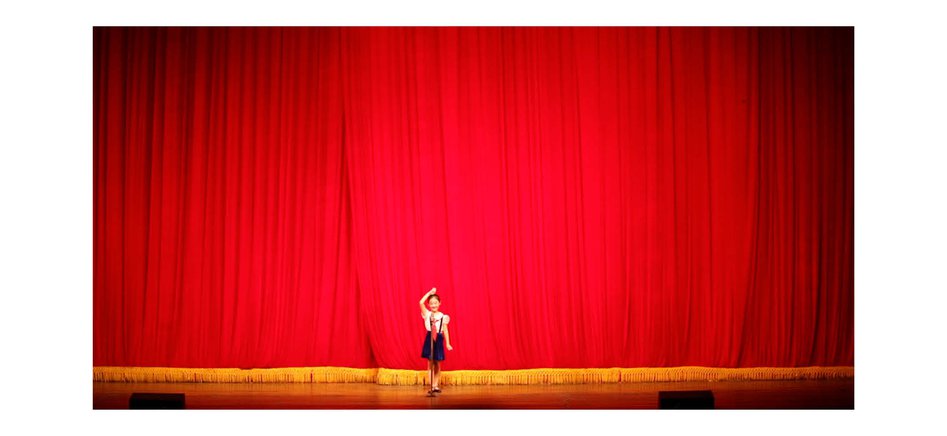
In response to “Negotiating Borders”, an exhibition on the DMZ – the demilitarized zone between North and South Korea – at LKCC, the Artist Video strand of the London Korean Film Festival offers a focus on South Korean filmmaker Yoo Soon-mi.
Yoo’s avant-garde essay films explore the repressed memories and unresolved conflicts that continue to haunt and define the Korean peninsula. Her acclaimed first-feature film Songs From the North, awarded with a Golden Leopard for Best First Feature at the 2014 Locarno Film Festival, will be presented in London for the first time accompanied by an earlier short film Dangerous Supplement. Dangerous Supplement uses footage from American fighter planes bombing North Korea, attempting to capture a landscape, which keeps drifting away. As Yoo has written, the film is “an incomplete index for the memory, a substitute for a vision that is yet to be born”. That vision was born with Songs from the North, a musical essay film constructed from images shot during three visits to North Korea interwoven with extensive archive material: television entertainment, popular films, propaganda videos and other archival footage.
Dangerous Supplement 위험한 보충물
Dangerous Supplement uses footage from American fighter planes bombing North Korea, attempting to capture a landscape, which keeps drifting away. As Yoo has written, the film is “an incomplete index for the memory, a substitute for a vision that is yet to be born”. That vision was born with Songs from the North, a musical essay film constructed from images shot during three visits to North Korea interwoven with extensive archive material: television entertainment, popular films, propaganda videos and other archival footage.
Director: Yoo Soon-mi
14 mins, 2005
Songs from the North 북녘에서 온 노래
Songs from the North highlights the difference between the presumed visuality of communism and the actual images emanating from North Korean television. Just as the songs clearly denote a by-gone era, presenting themselves as the musical equivalent of Soviet social realist paintings, the contemporary television images feel oddly anachronistic, as if not belonging to any particular moment of the 20th and 21st centuries, but to an alternative modernity instead. And yet, in spite of their military undertones, or precisely because of them, the songs also fill the film with a heavy sentimental charge. As Haden Guest has written, “To sincerely consider this country that challenges our most fundamental assumptions about the human condition is, Yoo argues, ultimately to question the meaning of freedom, love and patriotism.”
72 mins, 2014

